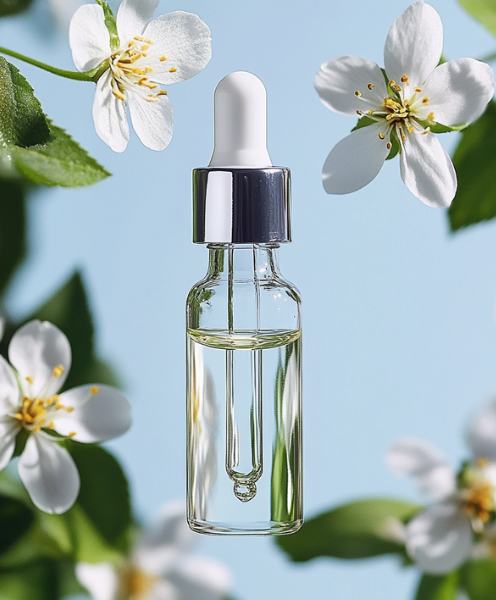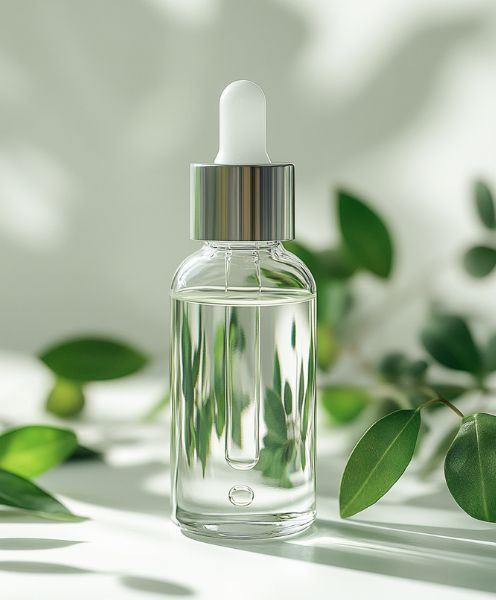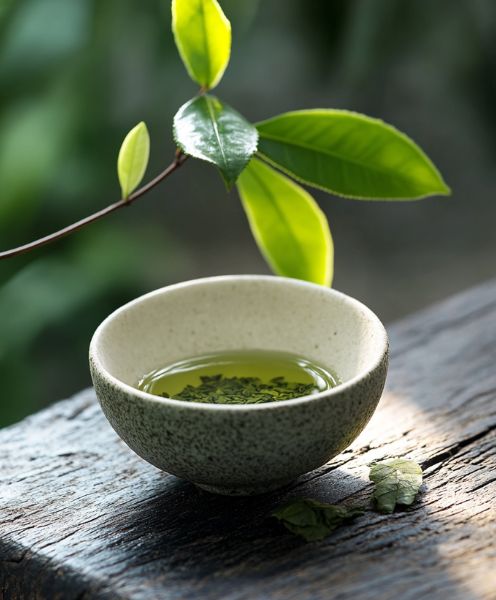5 Natural (and Affordable) Alternatives to Retinol!
You’re probably worried about the harm retinol can do to your skin, and you’re right to be concerned. While retinol is a popular ingredient, it’s not for everyone.
Why? It can cause irritation, dryness, and even more serious side effects (potential side effects of retinol explained here).
Below, five natural alternatives that offer similar benefits without the risks of retinol.
Disclaimer: You’ll find affiliate links below. I may earn a commission if you buy through my links at NO extra cost to you.
1. Rosehip oil: nature’s vitamin A in liquid form

Rosehip oil is like a little miracle in a bottle. Packed with vitamin C and natural vitamin A (in the form of beta-carotene), this golden oil is a gentle yet effective alternative to retinol.
Why it’s better
Unlike retinol, rosehip oil is suitable for all skin types, including sensitive and acne-prone skin. It’s deeply nourishing and rarely causes irritation. Plus, it’s rich in essential fatty acids that help keep your skin barrier strong and healthy.
How to apply
After cleansing, warm a few drops of rosehip oil between your palms and gently press it into your skin. Use it every evening as the last step in your skincare routine. For an extra boost, mix a drop or two into your regular moisturiser.
MY RECOMMENDED ROSEHIP OIL HERE.
2. Bakuchiol: the plant-based retinol alternative

Bakuchiol is the new kid on the block that’s been making waves in the skincare world. Derived from the seeds and leaves of the Psoralea corylifolia plant, this ingredient has been shown to have similar effects to retinol without the irritation.
Why it’s better
Studies have shown that bakuchiol can improve fine lines, wrinkles, and skin firmness comparably to retinol, but with significantly less irritation. It’s also safe to use during pregnancy and while breastfeeding, unlike retinol.
How to apply
Look for serums or moisturisers containing bakuchiol. Apply a pea-sized amount to your face and neck after cleansing, both morning and night. Unlike retinol, bakuchiol doesn’t increase sun sensitivity, so it’s safe to use during the day (but don’t forget your sunscreen!).
MY RECOMMENDED BAKUCHIOL SERUM HERE.
3. Carrot seed oil: the beta-carotene boost!

Carrot seed oil is derived from the seeds of the wild carrot plant (Daucus carota). It’s rich in beta-carotene, which your body can convert to vitamin A, as well as antioxidants that protect your skin from environmental damage.
Why it’s better
Carrot seed oil is gentler than retinol and suitable for most skin types. It’s particularly beneficial for mature or sun-damaged skin due to its high antioxidant content. Plus, it has a natural SPF (though you should still use sunscreen).
How to apply
Mix 2-3 drops of carrot seed oil with your favorite carrier oil (like jojoba or almond oil) and apply to your face and neck before bed. Start with using it 2-3 times a week and gradually increase frequency as your skin adjusts.
MY RECOMMENDED CARROT SEED OIL.
4. Niacinamide: a true multi-tasker wonder

Niacinamide, also known as vitamin B3, is a water-soluble vitamin that offers a wide range of skincare benefits. While it works differently from retinol, it can address many of the same skin concerns.
Why it’s better
Niacinamide is incredibly gentle and suitable for all skin types, even the most sensitive. It helps improve skin elasticity, reduce fine lines, even out skin tone, and even helps with acne. Unlike retinol, it doesn’t increase sun sensitivity and can be used both day and night.
How to apply
Look for serums or moisturisers containing 2-5% niacinamide. Apply a pea-sized amount to your face and neck after cleansing, once or twice daily. It plays well with other skincare ingredients, so you can easily incorporate it into your existing routine.
MY RECOMMENDED NIACINAMIDE SERUM HERE (from Natural Outcome).
5. Green tea extract: the antioxidant game-changer

Green tea isn’t just great for drinking – it’s also fantastic for your skin! Green tea extract is rich in polyphenols, particularly EGCG (epigallocatechin gallate), which have powerful antioxidant and anti-inflammatory properties.
Why it’s better
Green tea extract is gentler than retinol and suitable for all skin types. It helps protect the skin from damage caused by free radicals and UV radiation. While it may not have the same collagen-boosting effects as retinol, it can help improve skin texture and reduce the appearance of fine lines over time.
How to apply
Look for serums or moisturisers containing green tea extract. Apply to clean skin morning and night. You can also brew green tea, let it cool, and use it as a toner by applying it with a cotton pad after cleansing.
IF YOU’RE IN FOR BREWING SOME GREEN TEA FOR YOUR SKIN, THESE ARE THE TEA BAGS I RECOMMEND.
Freeing yourself from harmful ingredients
There you have it – five fantastic natural alternatives to retinol that can help you achieve that coveted glow without the potential irritation.
Remember, everyone’s skin is unique, so what works for one person might not work for another. It’s always a good idea to patch test new products and introduce them to your routine gradually.
Don’t be afraid to mix and match these alternatives to find the perfect combination for your skin.
And most importantly, be patient! Natural ingredients often take longer to show results compared to their synthetic counterparts, but the gentle, long-term benefits are worth the wait.

